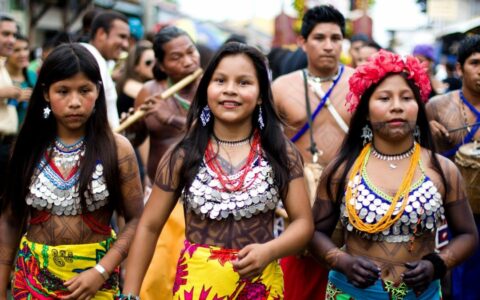Ibero-America comes together for the rights of people with disabilities
The countries of the region work together to contribute to the economic and social inclusion of people with disabilities, guaranteeing the exercise of their rights.
According to the latest available data (ECLAC, 2013), 12% of the Latin-American population has at least one disability. Prevalence is higher among women and other economically and socially vulnerable groups (children, older adults, rural population, indigenous and Afro-descendant people, and people with lower incomes).

Likewise, although progress has been made in recent years in terms of the protection of people with disabilities at the regulatory level, most of them continue to be excluded from political, economic and social life, as suggested by the fact that literacy rates, schooling, access to the labor market, wages and health indicators are considerably lower than those of the rest of the population, while those related to poverty are higher (SEGIB, 2018, pag 166).
In line with the above, it is possible to state that Ibero-America has not been indifferent to this problem within the region nor to its scale, as has been reflected in the successive declarations of its Summits of Heads of State and Government for almost two decades. Recognizing the need to include the disability perspective in a cross-cutting manner in order to ensure social inclusion and protection (Panama, 2013), and the mandate SEGIB and OISS* were set to prepare an initiative or program on the rights of people with disabilities, based on accumulated experience (Action Program, section A.3, Cartagena de Indias, Colombia, 2016), should be highlighted among the main milestones of this process, and as the origin of the program to which this Highlight refers (SEGIB, 2016).
In late 2017 and early 2018, efforts were focused on the design of the mandated program together with the national disability authorities of the promoting countries, supported by leading experts in public policy, academia and international organizations, as well as by the Spanish National Organization of the Blind (ONCE by its Spanish acronym), which contributed with its specialized technical advice.
The Ibero-American Program on the Rights of People with Disabilities was finally approved in the 16th Ibero-American Summit of Heads of State and Government held in La Antigua (Guatemala) in November 2018, starting its activities in 2019. Currently, Andorra, Argentina, Chile, Costa Rica, Ecuador, Spain, Guatemala, Mexico, the Dominican Republic and Uruguay are its member countries, while Paraguay joined as observer in February 2021. These countries work together to contribute to the economic and social inclusion of people with disabilities, promoting policies that ensure the full enjoyment and exercise of their rights, according to the United Nations Convention on the Rights of Persons with Disabilities (CRPD) and the 2030 Agenda.
Through technical assistance among its member countries, training, exchange of experiences and resources, and the identification of best practices, among other instruments, the Program focuses on six strategic objectives:
1. Data and statistics. Consolidate a system to collect and manage data on people with disabilities. This is not only aligned with the CRPD, but is essential for the design of public policies on disability, as well as to monitor progress on the SDGs.
2. Equality and non-discrimination. Guarantee access to justice and the right to equal recognition before the law for all people with disabilities.
3. Education. Guarantee access, permanence and success in an inclusive general education system, at all levels, which is respectful of the cultural identity of the deaf community.
4. Employment and social protection. Guarantee the full enjoyment of labor and trade union rights of people with disabilities in the public and private sectors.
5. Empowerment. Strengthen organizations of people with disabilities.
6. Health. Guarantee the right to health for people with disabilities and improve permanent and priority access to promotion, prevention and specialized care services.
December 2021
*Since 2012, OISS has led the Program on Employment of People with Disabilities in Ibero-America, supported by 16 countries of the region.
Source: SEGIB based on ECLAC (2013), SEGIB (2018) (2016) and OISS website.

